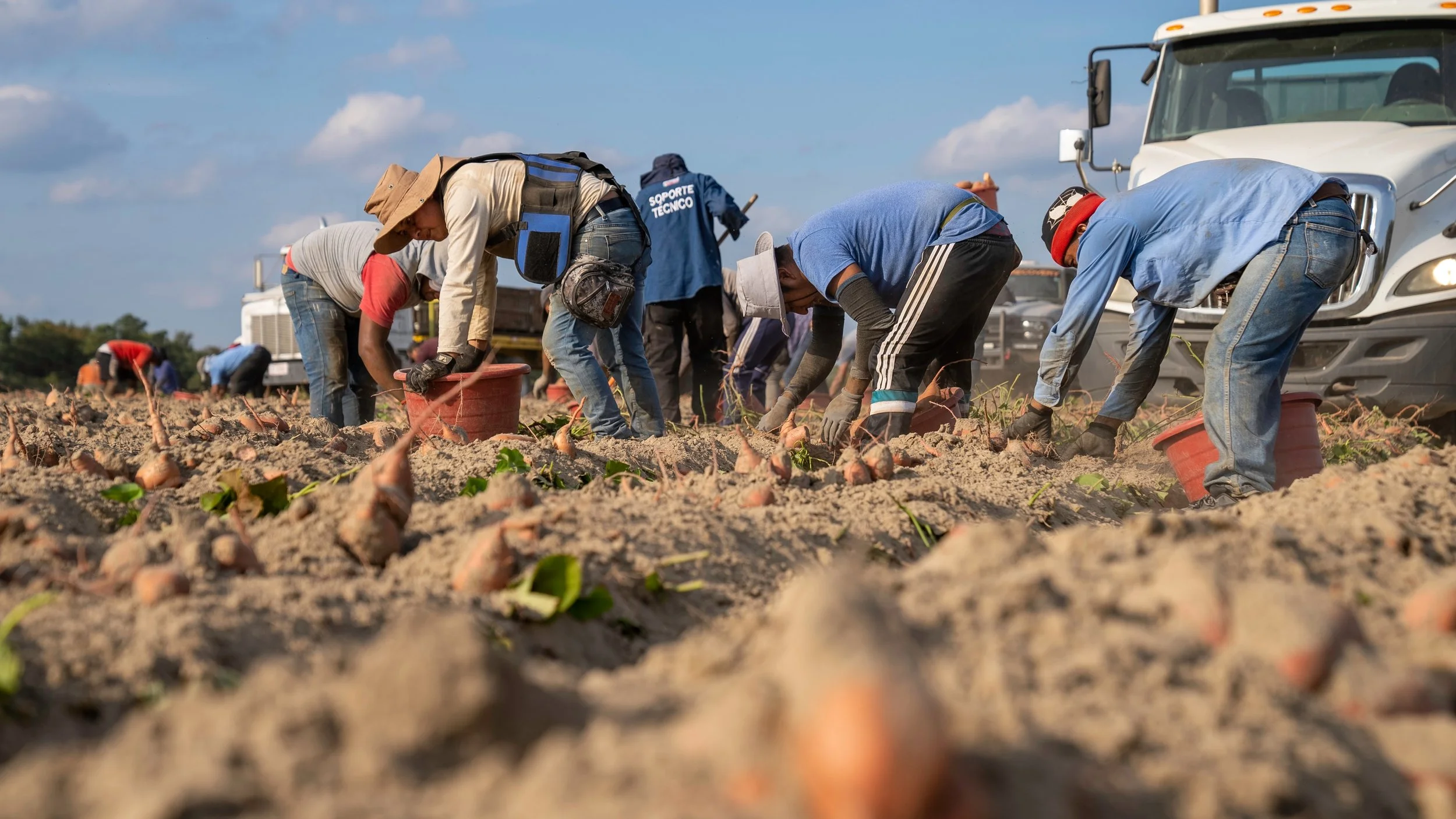Conference 2022 Panel Recap - “Marginalization in Supply Chains: An International Perspective”
Nirvia Ravena de Sousa, Clarisse Delaville, Maricruz Barba Gonzalez, and Mary Beckie shared different perspectives on marginalization in agriculture.
Gender inequalities in OECD agri-food systems.
"There is the possibility of change and transformation of societal norms through feminist academic research," expressed Clarisse Delaville, a Ph.D. student at McGill's Faculty of Law, while sharing her preliminary research results for the project titled: Gender Inequalities in OECD agri-food systems.
Clarisse shared her experience working on a family farm in Switzerland. Surrounded mostly by men, she noticed that their tasks were physical and arduous, while the women maintained quiet administrative roles. Clarisse was one of the only women working out on the field. She recalls being tasked with assisting sheep in giving birth as "women were more gentle and empathic" in these roles, according to the lead farmer.
For Clarisse, it was apparent that gender played a significant role in the tasks assigned on the farm. Thus, her experience motivated her current research on gender inequalities in agri-food systems. However, reviewing the literature, she noticed that most research focused on gender inequalities in developing countries. She hopes her current research fills a gap in the literature on agri-food gender inequalities in so-called developed nations. Women continue being under-represented in positions of power and decision-making in the agricultural economy.
Clarisse concluded with a powerful statement, "equality and diversity in decision-making would help meet contemporary challenges such as climate change mitigation and food security."
The voices of Mexican seasonal farm workers in Alberta.
Alberta is Canada's third largest exporter of agri-food products, contributing $9.2 billion to Alberta's economy. The Mexican seasonal labor force is a significant contributor to this achievement. In their research, Mary Beckie and Maricruz Barba Gonzalez of the University of Alberta explore the voices of Mexican seasonal farm workers in Alberta, who are increasingly concerned about their living and working conditions. The main themes explored in their research were health, cultural integration, and wage issues.
Although Mexican seasonal farm workers are motivated by the economic benefits of working in Canada, upon their arrival, they face many unexpected challenges. Many express feeling invisible, as their worth is determined by the amount of work they can do. As they age, their performance tends to be compared to their younger co-workers, which is detrimental to their self-worth. Further, many workers feel exploited, as they receive minimum wage for intense manual labor. They do not want to be treated as cheap labor. Finally, cultural integration is challenging, as many seasonal farm workers are placed in remote areas of Alberta, unable to move around easily. Unfortunately, feelings of loneliness and nostalgia are rampant in the community.
Maricruz Barba Gonzalez concludes by expressing that there is a need to rethink how institutions in Canada can improve labor rights for migrant workers, especially as a country that has a national discourse of inclusivity and justice.
Green certification is a mechanism for greenwashing.
The Amazon rainforest has long been the victim of environmental exploitation by multinational corporations. In her work, Nirvana Ravena de Sousa from the Universidade Federal do Pará explores how "green" certification is a mechanism for greenwashing. Major agricultural companies such as Cargill use RTRS certifications on soy products harvested in the Brazilian amazon forest, but evidence shows that over 500 pesticides are used on the crops. Further, Indigenous communities are continuously displaced by Cargill for soy harvesting. It is unclear how these corporations can satisfy the conditions for the RTRS certifications when they are environmentally irresponsible. Likewise, Roundtable on Sustainable Palm Oil certifications is used by companies such as Nutella on their products while actively engaging in large-scale deforestation in the amazon to harvest palm oil.
De Sousa argues that the requirements to fulfill the standard for these so-called green certifications are obscure and difficult to locate. Their confusing usage perpetuates environmental damage, which harms local Indigenous populations. De Sousa calls on the international legal community to regulate the behaviour of international companies in the amazon to prevent additional harm.
